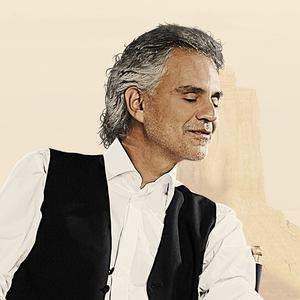Giselle Tour 2025
November 6, 2025 -
Now that the tickets for the latest Giselle tour are available, you can secure the best spots almost instantly.
There is no doubt that the latest Giselle tour is the biggest music even of the year. There is plenty of evidence for that. Every concert sees a huge number of fans gather around the stage in anticipation of a wonderful experience. It is no wonder that the best venues are always being selected for their concerts. There may be problems with getting the best tickets for these shows but with us you will be able to get a Giselle VIP package without any difficulties.
Everybody can now experience an incredible show from their favorite performer. Here you can purchase the tickets for all your favorite shows. Is there a fan that wouldn’t appreciate front row tickets for an affordable price?
We make sure to offer the most competitive prices for tickets for different concerts. Moreover, you can choose your tickets based on seat preference. You can actually choose your ticket based on seat preference. Just check the concert schedule and decide what the best spot to see and hear everything is!
You can’t really find anything similar to a live performance anywhere else. A lot of people are eager to see a Giselle concert at least once and get the truly amazing experience. They are aware of the fact that a mere computer screen won’t be able to convey all the beauty of a live concert. It is very easy to navigate our website and find the necessary information about the concerts and dates.
Simply check the dates for the performance at your hometown and book your tickets because they get sold out really quick! On our website you will find all the information regarding to the Giselle 2025 tour and other concert details.
Giselle Tickets 2025 - 2026
Giselle VIP Packages 2025/2026


About Giselle
Giselle (;French: [ʒizɛl]), originally titled Giselle, ou les Wilis (French: [ʒizɛl u le vili], 'Giselle, or The Wilis'), is a romantic ballet ("ballet-pantomime") in two acts, and is considered a masterwork in the classical ballet performance canon. It was first performed by the Ballet du Théâtre de l'Académie Royale de Musique at the Salle Le Peletier in Paris, France on 28 June 1841, with Italian ballerina Carlotta Grisi as Giselle. The ballet was an unqualified triumph. Giselle became hugely popular and was staged at once across Europe, Russia, and the United States.
The ghost-filled ballet tells the tragic, romantic story of a beautiful young peasant girl who falls for the flirtations of the deceitful and disguised nobleman Albrecht. When the ruse is revealed, the fragile Giselle dies of heartbreak, and Albrecht must face the otherworldly consequences of his careless seduction.
The second act is largely dominated by the Wilis, the spirits of maidens who died after being betrayed by their lovers, and take revenge in the night by dancing men to death by exhaustion (a popular theme in Romantic-era ballets). Led by Myrtha, the Queen of the Wilis, they summon Giselle from her grave and target her lover for her death, but Giselle's great love frees him from their grasp. They gain their power in numbers as they effortlessly move through dramatic patterns and synchronized movements, and control the stage with their long tulle dresses and stoic expressions, creating an ethereal atmosphere that builds as they gradually close in on Albrecht. By saving Albrecht from the Wilis, Giselle also saves herself from becoming one of them.
Librettists Jules-Henri Vernoy de Saint-Georges and Théophile Gautier took their inspiration for the plot from a prose passage about the Wilis in De l'Allemagne, by Heinrich Heine, and from a poem called "Fantômes" in Les Orientales by Victor Hugo.
The prolific opera and ballet composer Adolphe Adam composed the music. Jean Coralli and Jules Perrot created the original choreography. The role of Giselle was intended for Carlotta Grisi as her debut piece for the Paris public, and she was the only ballerina to dance it at the Paris Opera for many years. The traditional choreography that has been passed down to the present day derives primarily from the revivals staged by Marius Petipa during the late 19th and early 20th centuries for the Imperial Ballet in St. Petersburg. One of the world's most-often performed classical ballets, it is also one of its most challenging to dance.













